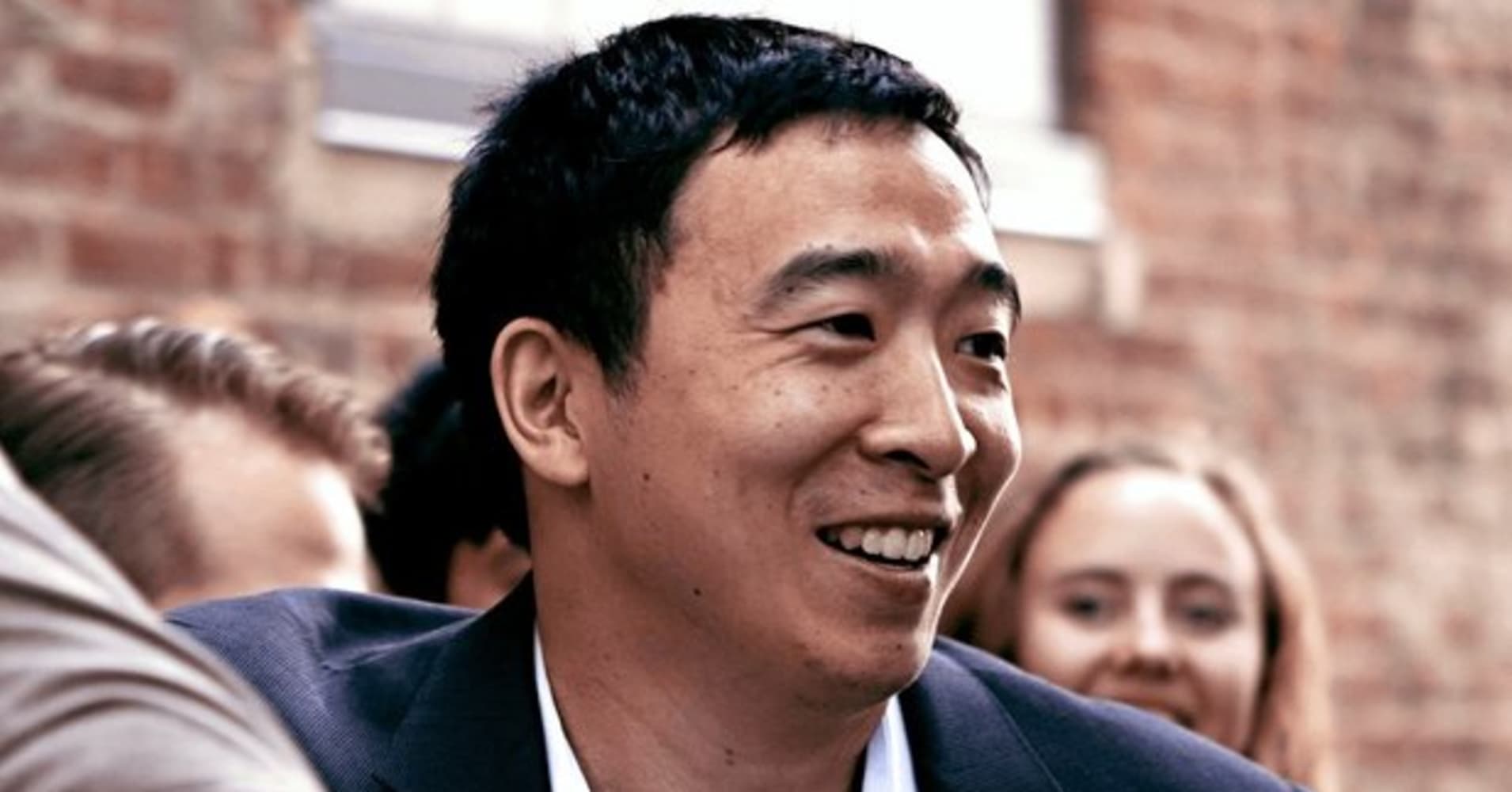Andrew Yang for President - Give Americans $1,000/month




The Freedom Dividend
Brief
Andrew would implement a Universal Basic Income, ‘the Freedom Dividend,’ of $1,000/month, $12,000 a year for every American adult between 18 and 64. This is independent of one’s work status or any other factor. This would enable all Americans to pay their bills, educate themselves, start businesses, be more creative, stay healthy, relocate for work, spend time with their children, take care of loved ones and have a real stake in the future.
A Universal Basic Income at this level would permanently grow the economy by 12.56 to 13.10 percent—or about $2.5 trillion by 2025—and it would increase the labor force by 4.5 to 4.7 million people. Putting money into people’s hands and keeping it there would be a perpetual boost and support to job growth and the economy.
- Any change to the Freedom Dividend would require a constitutional amendment.
- It will be illegal to lend or borrow against one’s Dividend.
- If one does not graduate from high school, your dividend does not begin until 20.
Medicare for All
Brief
Access to quality healthcare is one of the most important factors in overall well being, and yet America is one of the few industrialized nations to not provide healthcare for all of its citizens. Instead, we have a private healthcare system that leaves millions uninsured and bankrupts even some of those who do have health insurance. At the same time, our cost of care is higher than in almost any other industrialized country while providing worse outcomes. The Affordable Care Act was a step in the right direction, providing funds to states to innovate while expanding Medicaid substantially. However, it didn’t address the fundamental issues plaguing our healthcare system:
This must change.
- Access to medicine isn’t guaranteed to all citizens
- The incentives for healthcare providers don’t align with providing quality, efficient care
Either through expanding Medicare to all, or through creating a new healthcare system, we must move in the direction of a single-payer system to ensure that all Americans can receive the healthcare they deserve. Not only will this raise the quality of life for all Americans, but, by increasing access to preventive care, will bring overall healthcare costs down.
With a shift to single-payer, costs can also be controlled directly by setting prices provided for medical services. The best approach is highlighted by the top-ranked Cleveland Clinic. There, doctors are paid a flat salary instead of by a price-for-service model. This shift has led to a hospital where costs are visible and under control. Redundant tests are at a minimum, and physician turnover is much lower than at comparable hospitals.
Doctors also report being more involved with their patients. Since they’re salaried, there’s no need to churn through patient after patient. Instead, they can spend the proper amount of time to ensure that each patient receives their undivided attention and empathy.
Outside of a shift to a single-payer system with salaried doctors, we can look to the Southcentral Foundation for another important shift necessary in the way we treat patients: holistic approaches. At this treatment center for native Alaskans, mental and physical problems are both investigated, and, unsurprisingly, the two are often linked. By referring patients to psychologists during routine physicals, doctors are able to treat, for example, both the symptoms of obesity and the underlying mental health issue that often is related to the issue. The referral also leads people with issues they may otherwise try to bury – sexual abuse, addictions, or domestic violence issues – to bring them up with a doctor so that they can be addressed.
By providing holistic healthcare to all our citizens, we’ll drastically increase the average quality of life, extend life expectancies, and treat issues that often go untreated. We’ll also be able to bring costs under control and outcomes up, as most other industrialized nations have.
And by freeing doctors from being paid a fee for a service, they’ll be free to innovate, coming up with new solutions to problems. Our doctors enter the profession because they want to help people; let’s free them to do just that.
Finally, being tied to an employer so that you don’t lose your healthcare prevents economic mobility. It’s important that people feel free to seek out new opportunities, and our current employee-provided healthcare system prevents that.
Human Capitalism
Brief
Capitalism as an economic system has led to unparalleled innovation and improvement in the human condition. Many consider it to have “won” the war of ideas against socialism, but that simplistic view ignores that there is no such thing as a pure Capitalist system. And our current version of institutional capitalism and corporatism is a relatively recent development.
Our current emphasis on corporate profits isn’t working for the vast majority of Americans. This will only be made worse by the development of automation technology and AI.
We need to move to a new form of capitalism – Human Capitalism – that’s geared towards maximizing human well-being and fulfillment. The central tenets of Human Capitalism are:
The focus of our economy should be to maximize human welfare. Sometimes this aligns with a purely capitalist approach, where different entities compete for the best ideas. But there are plenty of times when a capitalist system leads to suboptimal outcomes. Think of an airline refusing to honor your ticket because they can get more money from a customer who purchases last-minute, or a pharmaceutical company charging extortionate rates for a life-saving drug because the customers are desperate.
- Humans are more important than money
- The unit of a Human Capitalism economy is each person, not each dollar
- Markets exist to serve our common goals and values









